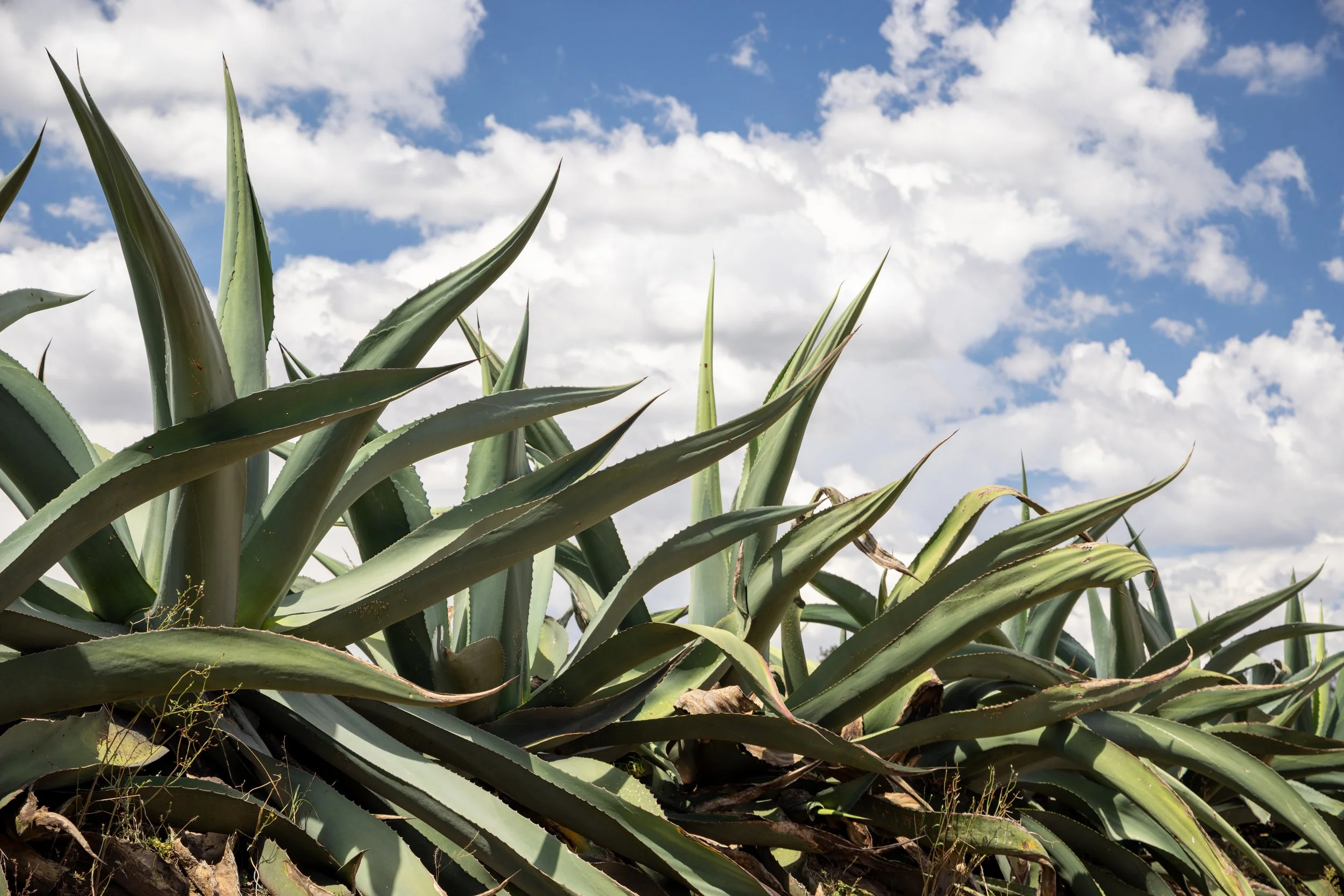
aguamiel syrup
The Land
Agave is a genus of succulent plants native to the warm, arid regions of the Americas and the Caribbean. Within this genus, 210 species have been identified worldwide, 159 of which grow naturally in Mexico and 119 are endemic to the country.
The term "maguey" refers to some species from this genus that are native to central and southern Mexico. The main growers of these species are found along the Mexican plateau region, and particularly in the Hidalgo state.
Maguey species are the foundation of pulque, a traditional Mexican alcoholic beverage made by fermenting the sap, called aguamiel, best translated as honey water.
The Process
Maguey plantations flourished in the late 19th century, but today their cultivation is based on small areas where these plants are grown using traditional methods.
At over 2,500 meters above sea level, small farms organize their plantations to ensure a constant supply of aguamiel throughout the year, a crucial task, as a single plant takes more than 10 years to begin producing aguamiel.
The unique feature of aguamiel harvesting is that the plant is milked only twice a day for a maximum of a couple of months and only once in its life cycle.
The Product
Aguamiel refers to the freshly gathered sap from the heart of a maguey during its productive stage. Studies confirm that this sap is rich in carbohydrates, particularly in monosaccharides (glucose, sucrose, and fructose) and polysaccharides (fructans). It also contains other nutrients like amino acids, proteins, minerals, and vitamins as well as bioactive substances, like saponins and phenolic compounds.
By applying The Technical Standard NTE-SAGEH-001/2006 to aguamiel, a concentrated product that maintains both nutrients and bioactive compounds is obtained, the Aguamiel Syrup.
All aguamiel is processed with the Technical Standard on the same day of harvest and then blended into two main batches: one for the spring-summer season and one for the fall-winter season.
Although aguamiel has been consumed in Mexico for centuries. The confirmation by science of the biologic effects on syrup form is still in progress. It is believed that aguamiel syrup maintains the therapeutic qualities of aguamiel (anti-inflammatory, and antioxidant), and potentially has a low glycemic index.

